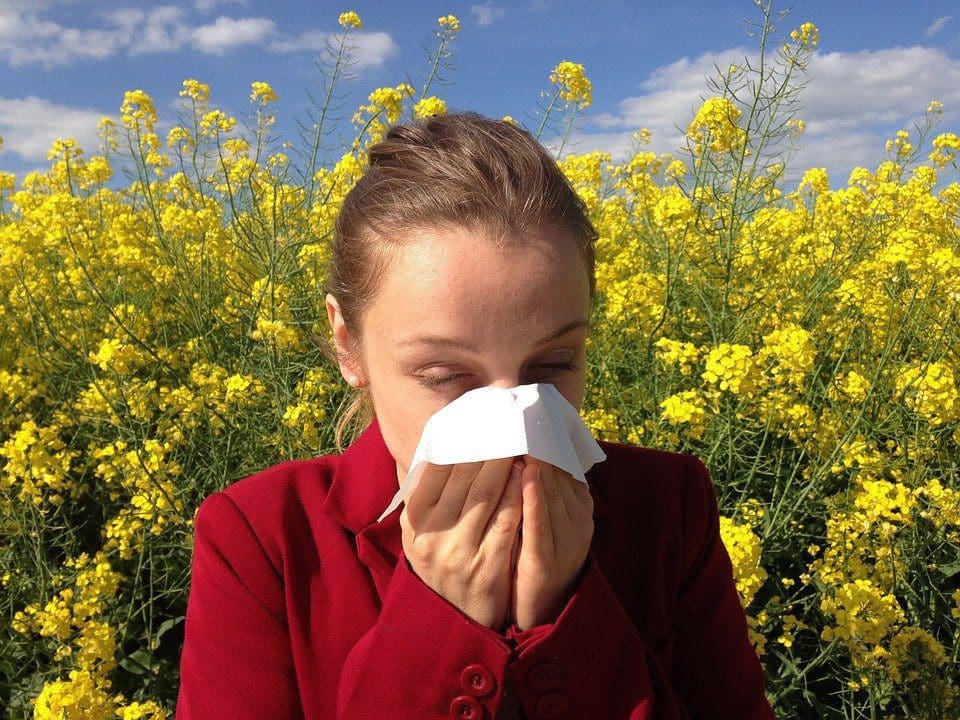
By Akers Editorial
Seasonal allergies or coronavirus: how to tell the difference

 With warmer weather and allergy season in full swing, some Lake and Sumter County residents may be wondering if they have COVID-19 or just suffering from allergies.
With warmer weather and allergy season in full swing, some Lake and Sumter County residents may be wondering if they have COVID-19 or just suffering from allergies.
Every year, more than 19 million Americans experience seasonal allergies — namely, hay fever, according to AdventHealth, which has published a website blog to inform readers on how to tell the difference between allergies and COVID-19.
During the current coronavirus pandemic, any symptoms of illness may raise some alarm. Just like there are differences between the flu, a cold and coronavirus, there are key differences between seasonal allergies and coronavirus. Knowing these differences can ease your mind and help you and your family make the best health care choices.
AdventHealth says COVID-19 shares some symptoms with other illnesses. A person may develop a fever and cough with both coronavirus and the seasonal flu. But, in terms of COVID-19 and seasonal allergies, the symptoms don’t overlap much.
The main symptoms of coronavirus disease appear to be a fever, a dry cough and shortness of breath. According to the World Health Organization, some people may also have:
- Body aches
- Fatigue, or extreme tiredness
- In rare cases, diarrhea, nausea and a runny nose
- Sore throat You are also not likely to have a cough, body aches or chest discomfort. The most common symptoms of hay fever and other seasonal allergies are:
- How are these symptoms different from seasonal allergies? If you have allergies, it’s important to note that you won’t have a fever.
- Itchy and watery eyes
- Runny or stuffy nose
- Sneezing
In contrast, the symptoms of COVID-19 typically last a few days to a week. And the Centers for Disease Control and Prevention (CDC) has found that most cases start within two to 14 days after a person is exposed to the virus. Despite the above differences, it may still be hard to distinguish coronavirus from other ailments, including seasonal allergies. Many people with coronavirus seem to have only mild symptoms, and some people may not have any symptoms.
The best approach during this time is to talk with a doctor if you or a loved one doesn’t feel well and you are concerned about the symptoms. The physician will tell you how best to proceed. Make sure to tell the doctor if you are older than age 65 or have any underlying health conditions that may put you at risk for severe illness. These include:
- Being immunocompromised
- Cancer
- Chronic lung disease or asthma
- Diabetes
- Diseases that cause a weakened immune system
- Heart disease or other heart problems
- HIV
- Kidney failure or liver disease
- Severe obesity (having a BMI at or over 40)To help prevent the spread of coronavirus, you should avoid the hospital emergency department except in the event of a true emergency. But while most people with COVID-19 are having mild symptoms, emergency care is sometimes needed.
Call 911 if you or a loved one develops these severe symptoms:
- Bluish lips or face
- Confusion or inability to stay awake
- Ongoing chest pain or pressure
Trouble breathingStaying at home is one of your best defenses against coronavirus. For more help and information, visit AdventHealth’s website, adventhealth.com.
When you call 911, tell the operator that you have or think you may have coronavirus. Otherwise, with worsening symptoms that don’t seem life-threatening, the best thing to do is call your physician first. With a phone call or video visit, your physician can advise you on what to do next. Staying home is one of your best defenses against coronavirus. For more information, visit adventhealth.com.






























